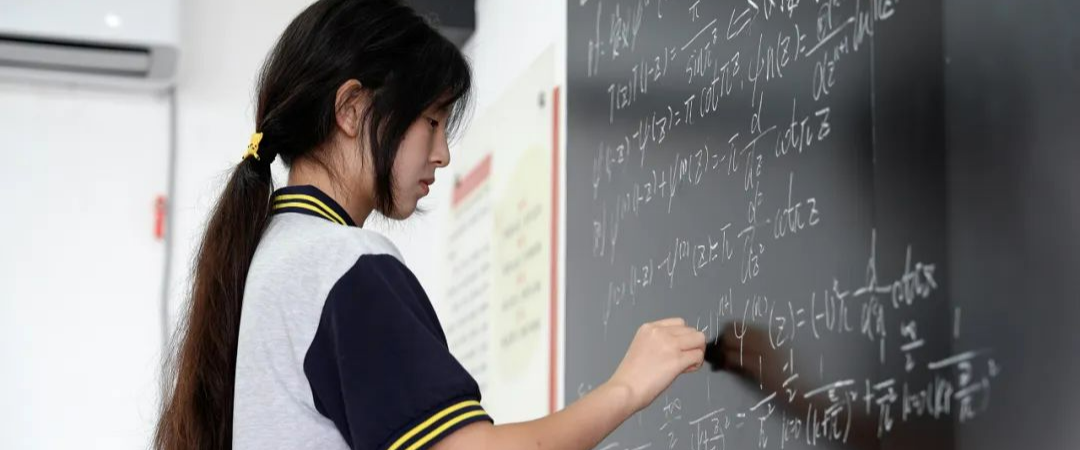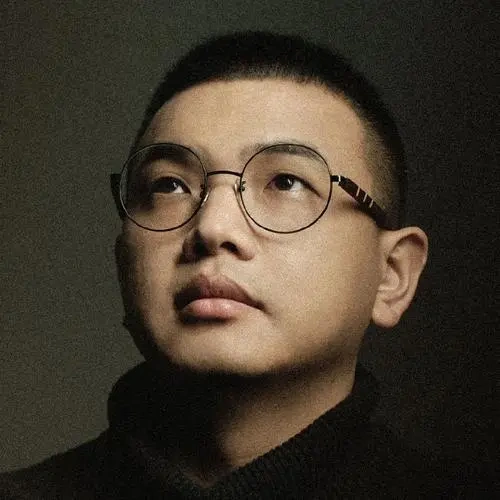Chinese Vocational School Beating MIT? The Trick Down Effect in China's Education

17-year-old Jiang Ping, a student majoring in fashion design at a vocational school in Lianshui County, Jiangsu Province, went to participate in the Alibaba Global Mathematics Competition and achieved the 12th position globally. It is indeed a legendary story for a student from a small county vocational school in China to surpass students and faculty from top global universities such as Peking University, Tsinghua University, Fudan University, the Chinese Academy of Sciences, Cambridge, and MIT.
 Jiang Ping is a student of fashion design
Jiang Ping is a student of fashion design
However, in fact, the 26th-ranked Deng Leyan is only a junior high school student, while the 233rd-ranked Chang Jie and the 332nd-ranked Zhao Min are both from my hometown, Shaoyang, and attend the relatively unknown Shaoyang University, which even my high school teachers looked down upon. The 345th-ranked He Jinyin is a self-taught individual without any formal education or teachers.
In this competition with 60,000 participants, they have all defeated students and faculty from Peking University and Tsinghua University. They have all achieved extraordinary results based on their individual talents and abilities. They are all remarkable.
Due to the story’s narrative of changing one’s life, which the Chinese highly favor, this event has caused a sensation online for several days. I initially thought the excitement would subside after a couple of days, but then I realized that the competition was not yet over. There is still a final round to come, which means the story of Jiang Ping is likely to gain more attention.
However, I have always believed that this occurrence is not so extraordinary, and the public’s reaction has been somewhat exaggerated.
With a population of 1.4 billion people in China and the widespread availability of higher education, there were 11.79 million university graduates this year, estimated to reach 12 million in 2025 and 16 million in 2030. As the birth rate decreases, it will decrease to 7.61 million by 2040.
What does it mean to have 16 million university graduates? The entire population of Taiwan is only 23 million. The entire population of Singapore is only 5.6 million. Even the entire population of Saudi Arabia is only 36 million. Having 16 million university graduates in China is truly astonishing on a global scale.
If we trace it back to its origins, the educational environment in China is currently excellent, producing a large number of well-educated individuals. Jiang Ping herself has benefited from the spillover effects of this education system.
Some may not understand why Jiang Ping, an ordinary vocational school student, would benefit from the Chinese higher education system.
That’s because while exceptional individuals are relatively common, exceptional teachers are not. Among a population of 1.4 billion, there will undoubtedly be geniuses, but geniuses also need good teachers to guide and educate them.
After Jiang Ping entered the vocational school, she had an excellent mathematics teacher who identified her talent and guided her through advanced mathematics step by step, allowing her to showcase her gifted abilities.
Jiang Ping’s mathematics teacher, Wang Runqiu, is an example of the spillover effects of the education system.
Wang Runqiu, who is around 30 years old this year, holds a master’s degree in mathematics from Jiangsu University. He studied under Professor Lu Dianchen at the School of Mathematical Sciences and currently teaches at the vocational school in Lianshui, Jiangsu.
In the 2022 Alibaba Global Mathematics Competition, Wang Runqiu ranked 166th in the preliminary round. In 2023, he achieved the 432nd position, and in 2024, he achieved the 125th position. It was he who discovered Jiang Ping’s mathematical talent and guided her to study “Advanced Mathematics” at Tongji University, followed by Xie Huimin’s “Mathematical Analysis” and Lawrence C. Evans’ “Partial Differential Equations.”
In other words, Jiang Ping is a disciple of Lu Dianchen, and she had someone teaching her top-level skills from the beginning.
I also graduated from a vocational school, but it was a vocational school from twenty years ago. How could we have such good teachers to teach us? Back then, after finishing junior college, we could become teachers at vocational schools. Some of my classmates who graduated from vocational school directly stayed on as teachers. But now, it’s surprising to see that a master’s student from the Mathematics Department of Jiangsu University is teaching at a vocational school. This shows that there is an overflow of talent from higher education, so much so that it’s almost too much to handle. This overflow creates a spillover effect, and occasionally, a talented student encounters a solid foundation in a good mentor, allowing her to surpass renowned institutions and experts in competitions.
If this isn’t the spillover effect of China’s higher education system, then what is it?
Out of a population of 1.4 billion, there are bound to be geniuses. Some are naturally talented in art, some in writing, some in medicine, and some in mathematics. However, geniuses are often buried and remain undiscovered because people are busy with their survival and can’t showcase their talents.
If Jiang Ping were born in 1982 in Hunan, even if she had such exceptional mathematical talent, she would likely have ended up like most of my classmates. Without encountering such good teachers, she would have completed three years of ordinary education, graduated from vocational school in 2000, traveled to Guangdong by overcrowded trains carrying plastic buckets for work, and perhaps even becoming a victim of a motorcycle gang robbery. She would have lived in a 10-square-meter farmhouse with her boyfriend, bought a secondhand computer, and started self-studying from Excel. Slowly, over ten years, she would have climbed to a middle-level position in a factory, had two children, bought a house in the county town, and switched careers to become a beautician or open a small shop at the age of forty.
She would have never known that she was originally a mathematical genius.
When I studied history, I was always curious about why small countries like England and France produced countless historical figures in various fields of study.
It’s not surprising; it’s because the platform elevated them.
Among every ten thousand people, there are always outstanding individuals, and there are always geniuses. Geniuses are not rare, but platforms that allow them to shine are extremely scarce. Geniuses often wither away without ever blossoming due to the pressures of real life. Some work in the fields, some on assembly lines, and some drive horse-drawn carts to deliver grain.
Engels came from an affluent family, so why did he betray his own class to assist Marx?
It’s because Engels often interacted with ordinary workers and discovered that many of them had a natural interest in astronomy, mathematics, and physics. He frequently discussed these topics with them and realized that there were geniuses among the common people, but they had been buried and overlooked. That’s why he was willing to follow Marx and assist the proletariat.
After the Industrial Revolution, England and France produced so many renowned individuals because the level of education had been raised to a point where it allowed more talented individuals to showcase their abilities. That’s why there were numerous physicists, chemists, and astronomers.
Then there are some people who, even if they don’t have exceptional talent, have a high income. They travel the world with their wealth, focusing on studying human geography, and eventually become historians or geographers.
Jiang Ping is important, but Wang Runqiu is even more crucial. And how many years does it take to cultivate someone like Wang Runqiu? How many years does it take to establish a platform for nurturing individuals like Wang Runqiu?
It is the result of generations of people who have tirelessly developed education over the past seventy years.
After Jiang Ping became famous, many media outlets chased after her for traffic. Some self-media even went to her home to interview her from every angle.
Faced with this chaotic situation, Wang Runqiu remained calm and mature. He said, “Everyone should stop labeling Jiang Ping as a ‘genius girl’ and let her focus on preparing for the final round, immersing herself in this feast of intellectual stimulation.”
You see, a good mentor and a good platform not only respect your intelligence but also protect your emotions.
In reality, the world is not lacking in geniuses. However, it is the most challenging task to discover, nurture, and protect geniuses, allowing them to shine brightly and radiate their brilliance.
https://mp.weixin.qq.com/s/GqXF4ZGzgv4NVtxJmI2YtA




